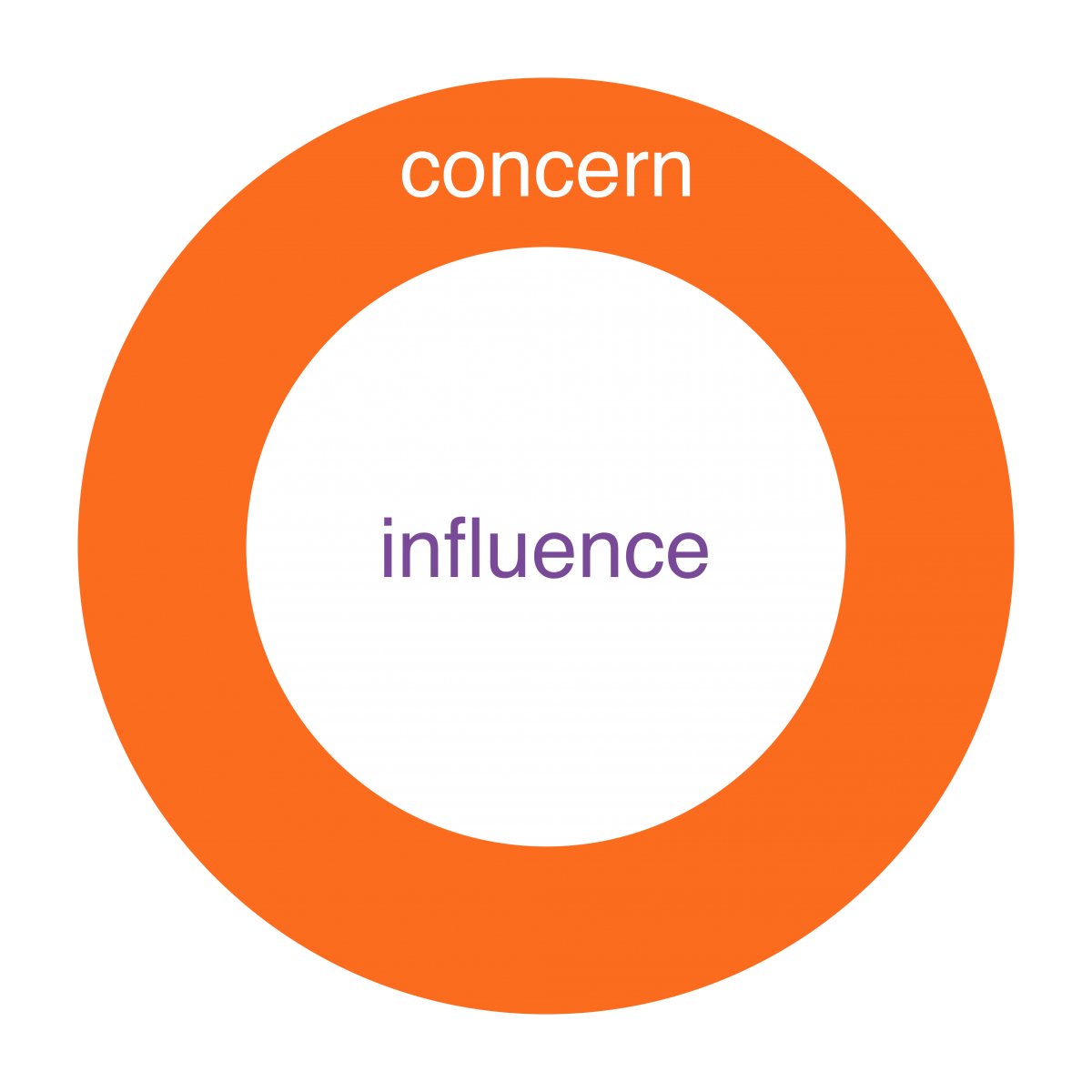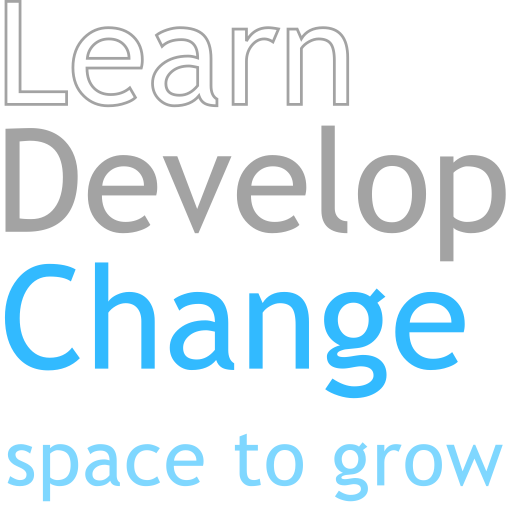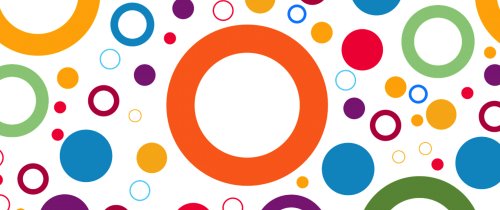One of the things the late Stephen Covey was famous for is the idea of "circles of influence" and "circles of concern". At the centre of this idea is an invitation to get proactive and work on what can be changed instead of focusing on things outside your control.
Influence versus Concern
Think about a difficult situation you are currently dealing with. List the elements you can directly or indirectly influence. Maybe you have the authority to insist that everyone meet and talk things through, for example. The things we can directly or indirectly control go in the circle of influence.

Next list everything else - the stuff you can't control. Stephen Covey called these "areas of concern" and they occupy the outer circle.
Covey’s first message here is that you need to focus on the stuff you can do something about in contrast to wasting energy on things outside your control. How many times do you find yourself in a situation worrying about "them" and what "they will do"? Why not focus on the things you can do instead?
Proactivity versus Reactivity
Proactivity happens, Covey said, when you spend your energy on things that can produce results. Reactivity happens when you waste your energy on things that can't be changed. Interestingly the more proactive you are the greater your ability to influence - and the more likely you are to have an impact on those "areas of concern" that are apparently out of reach.
On the other hand, if you focus only on areas of concern, you give them more power in your life and end up feeling stuck. Focusing on what you can do brings another important benefit. It reduces stress.
By accepting and letting go of the things you can’t control you get the positive reinforcement that comes from concentrating on the things you can.
One last point: it's easy to miss the most obvious and powerful thing we can control in any situation: our thoughts. Taking the time to choose better thinking is something we can control directly and is a smart place to start. By choosing useful thinking and being proactive we are already well on the way to achieve a great outcome.
References
See Seven Habits of Highly Effective People, 25th Anniversary Edition Page 88

